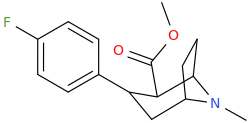dopamimetic
Bluelighter
Hi everyone,
based on the new evidence brought up here about COX-2, interleukin 6 etc. some new theory is forming in my mind.
So there seem to be genetic predispositions for all this stuff, and chronic stress especially in the childhood can trigger things. Because of the sensibility and emotionality, obviously, some people like me are more susceptible to emotional stress, leading to a downward spiral. Very remarkable is that with the glutamate adjusted in the right way, I seem to be able to perform cognitively extremely well with sort of hypermnesia and pronounced ability to understand complex matter as well as to draw conclusions. This can easily become overwhelming and look sorta ADHD-alike and of course any sort of stress / pressure / over excitation exacerbates the things, again a downward spiral. Here the dissociative effects of NMDA antagonists obviously have an independent alleviating effect by helping one to keep distances to the things and act more soberly.
It is so sad that because of prohibition and abuse such overly promising compounds like MXE being not further investigated and researched, with the recent science about Ketamine and its effects on therapy-resistant refractory depression being a truly remarkable exception, as well as its use as an adjunct treatment for pain & the approval of DXM/quinidine for Pseudobulbar Affect.
Maybe because of this, maybe because of a sum of all, ADHD people seem to benefit from NMDA antagonism too, but not all to the same degree so it has been statistically overlooked. Remarkable is that atomoxetine is an NMDA antagonist too and I bet the benefits some get from it are more due to this mechanism than the NRI activity and the latter only leading to side effects. A combined DRI (possibly slight SDRI) & NMDA antagonist without NE activity would be a huge advance.
Seen in this light, the tolerance development of psychostimulants could fit well and be due to different mechanisms as currently thought. As well as the tolerance-abolishing effects of NMDA antagonists for some individuals would make perfect sense. So the acute increase in dopamine is relieving, but gives rise to over excitation, inflammation responses and eventually a worsening of symptoms. Leading to increased dosing on stimulants and/or co-medicating with sedatives ... this has been very pronounced in someone I've met several years ago and where I saw so many similarities in the way she thought, felt, acted etc. to me - she was diagnosed with severe ADHD, had the same adverse reactions to stimulants as well as neuroleptics, was on uber-high doses of d-amphetamine with the obvious adverse effects and smoked pot / used opioids on top of that to get relief. She got messed up obviously & is now off the amphetamine, living with the hell of para-ADHD .... but I guess her can be helped too now with all this great exciting stuff.
So far, I would absolutely love to read your thoughts about all this.
Thanks for any response!
-dopamimetic
based on the new evidence brought up here about COX-2, interleukin 6 etc. some new theory is forming in my mind.
So there seem to be genetic predispositions for all this stuff, and chronic stress especially in the childhood can trigger things. Because of the sensibility and emotionality, obviously, some people like me are more susceptible to emotional stress, leading to a downward spiral. Very remarkable is that with the glutamate adjusted in the right way, I seem to be able to perform cognitively extremely well with sort of hypermnesia and pronounced ability to understand complex matter as well as to draw conclusions. This can easily become overwhelming and look sorta ADHD-alike and of course any sort of stress / pressure / over excitation exacerbates the things, again a downward spiral. Here the dissociative effects of NMDA antagonists obviously have an independent alleviating effect by helping one to keep distances to the things and act more soberly.
It is so sad that because of prohibition and abuse such overly promising compounds like MXE being not further investigated and researched, with the recent science about Ketamine and its effects on therapy-resistant refractory depression being a truly remarkable exception, as well as its use as an adjunct treatment for pain & the approval of DXM/quinidine for Pseudobulbar Affect.
Maybe because of this, maybe because of a sum of all, ADHD people seem to benefit from NMDA antagonism too, but not all to the same degree so it has been statistically overlooked. Remarkable is that atomoxetine is an NMDA antagonist too and I bet the benefits some get from it are more due to this mechanism than the NRI activity and the latter only leading to side effects. A combined DRI (possibly slight SDRI) & NMDA antagonist without NE activity would be a huge advance.
Seen in this light, the tolerance development of psychostimulants could fit well and be due to different mechanisms as currently thought. As well as the tolerance-abolishing effects of NMDA antagonists for some individuals would make perfect sense. So the acute increase in dopamine is relieving, but gives rise to over excitation, inflammation responses and eventually a worsening of symptoms. Leading to increased dosing on stimulants and/or co-medicating with sedatives ... this has been very pronounced in someone I've met several years ago and where I saw so many similarities in the way she thought, felt, acted etc. to me - she was diagnosed with severe ADHD, had the same adverse reactions to stimulants as well as neuroleptics, was on uber-high doses of d-amphetamine with the obvious adverse effects and smoked pot / used opioids on top of that to get relief. She got messed up obviously & is now off the amphetamine, living with the hell of para-ADHD .... but I guess her can be helped too now with all this great exciting stuff.
So far, I would absolutely love to read your thoughts about all this.
Thanks for any response!
-dopamimetic
Last edited:









